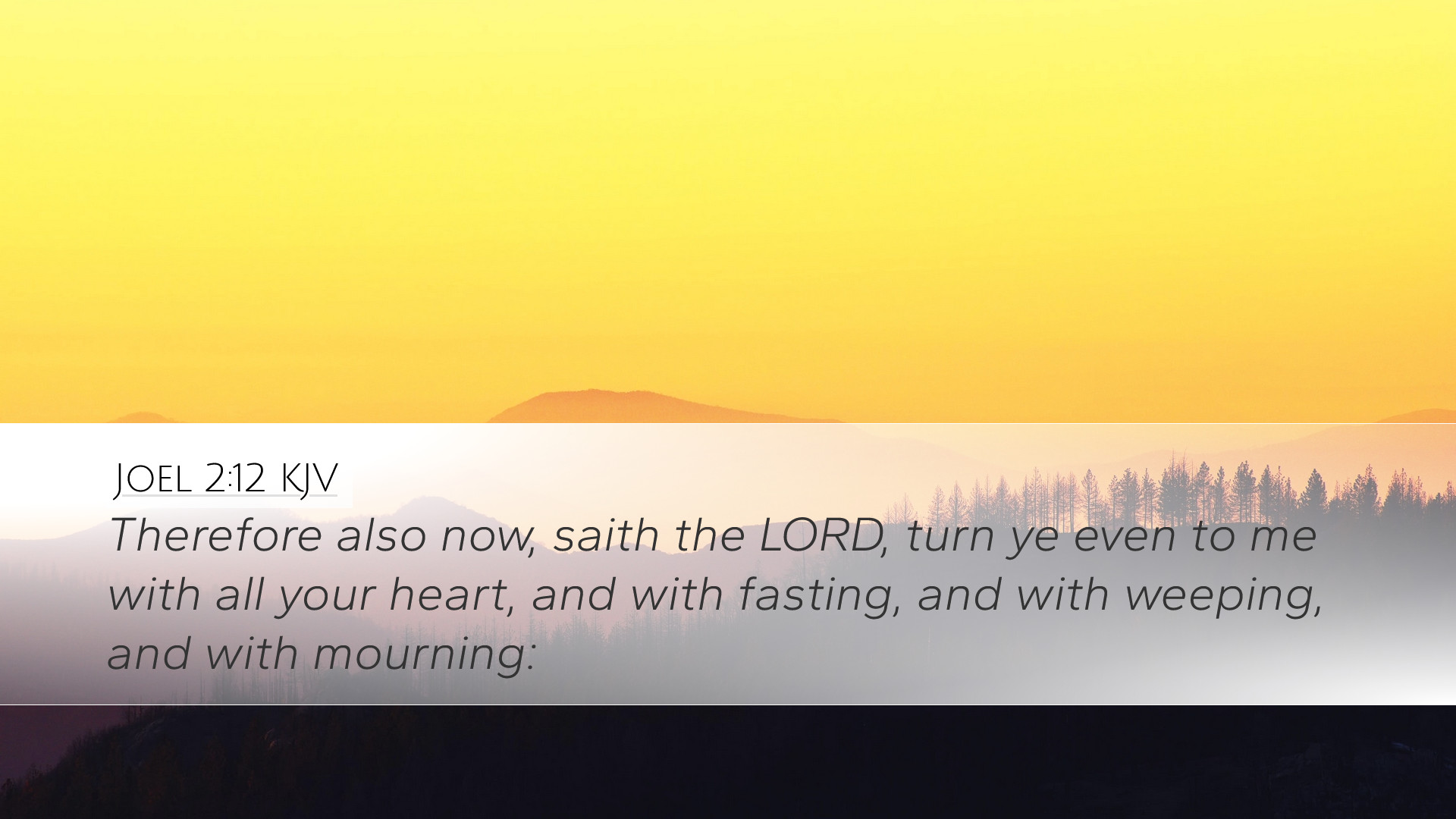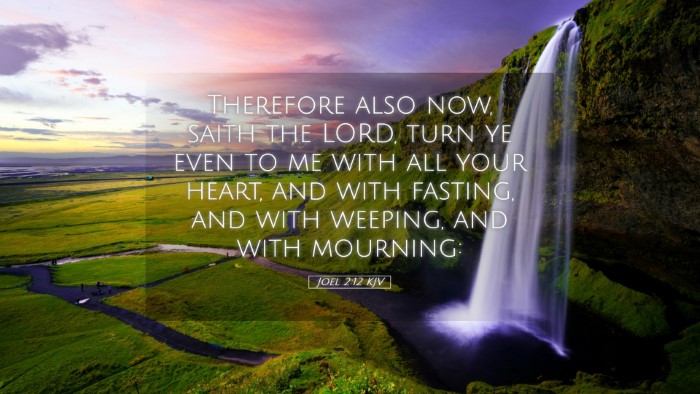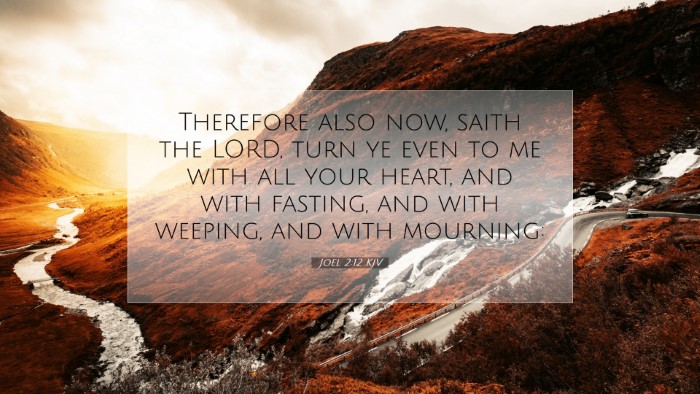Commentary on Joel 2:12
Verse: "Yet even now, says the Lord, return to Me with all your heart, with fasting, with weeping, and with mourning." (Joel 2:12)
Introduction
The book of Joel serves as a profound prophetic message to the people of Judah amidst a time of disaster. Joel 2:12 is a pivotal verse that encapsulates God's desire for His people to return to Him with genuine repentance. This commentary synthesizes insights from both public domain commentaries and offers theological reflections suitable for pastors, students, and scholars.
The Call to Return
Matthew Henry emphasizes that the phrase "Yet even now" signifies hope and divine grace, suggesting that no matter how far one has strayed, God's invitation to repentance is still available. This is a critical reminder that God's mercy transcends the severity of sin.
Albert Barnes points out that the call to 'return' implies a previous departure from God. The prophets often remind Israel of their covenant relationship, urging them to recognize that their troubles stemmed from their disobedience. This motivates a genuine return filled with heartfelt repentance.
Returning with All Your Heart
The call to return 'with all your heart' signifies total devotion and sincerity. Adam Clarke elaborates that this encompasses not merely outward actions but an inward transformation. True repentance involves the heart, mind, and soul being aligned with God’s will.
- Fasting: A practice signifying humility and urgency in the quest for God's mercy.
- Weeping: Reflects genuine sorrow for sin, demonstrating that repentance should not be superficial.
- Mourning: Represents the deep emotional response to the brokenness of fellowship with God.
The Role of Fasting, Weeping, and Mourning
Matthew Henry notes that these acts of contrition are physical manifestations of the heart's state. Each element symbolizes aspects of repentance: fasting restrains the flesh and focuses on the spiritual; weeping displays emotional brokenness; mourning signifies the recognition of sin's destructive nature.
Albert Barnes further emphasizes that these practices are not ends in themselves but rather avenues through which one seeks communion with God. They illustrate a longing for restoration and highlight the seriousness of returning to God.
The Theological Implications
Theologically, this verse encapsulates the concept of repentance as central to the believer's relationship with God. Adam Clarke argues that God's appeal urges each individual to recognize the necessity of repentance, reinforcing that restoration is always available through heartfelt return to the Lord.
This verse also aligns with the overarching biblical narrative of redemption, showing that God continuously calls for restoration, regardless of past transgressions. The depth of God’s love and patience is evident in His call for His people to return, providing a profound model for pastoral care and counseling.
Conclusion
In Joel 2:12, the Lord's call to return invites profound reflection on the nature of repentance. The insights from Matthew Henry, Albert Barnes, and Adam Clarke provide a rich tapestry for understanding the dynamics of returning to God with sincerity and urgency. As pastors, students, and theologians explore this passage, they are reminded of the importance of a heart wholly devoted to God, marked by tangible expressions of repentance.
Thus, this scripture not only serves as an exhortation but a promise of restoration, inviting all who hear it to engage in the transformative journey of returning to the Lord with their whole hearts.


